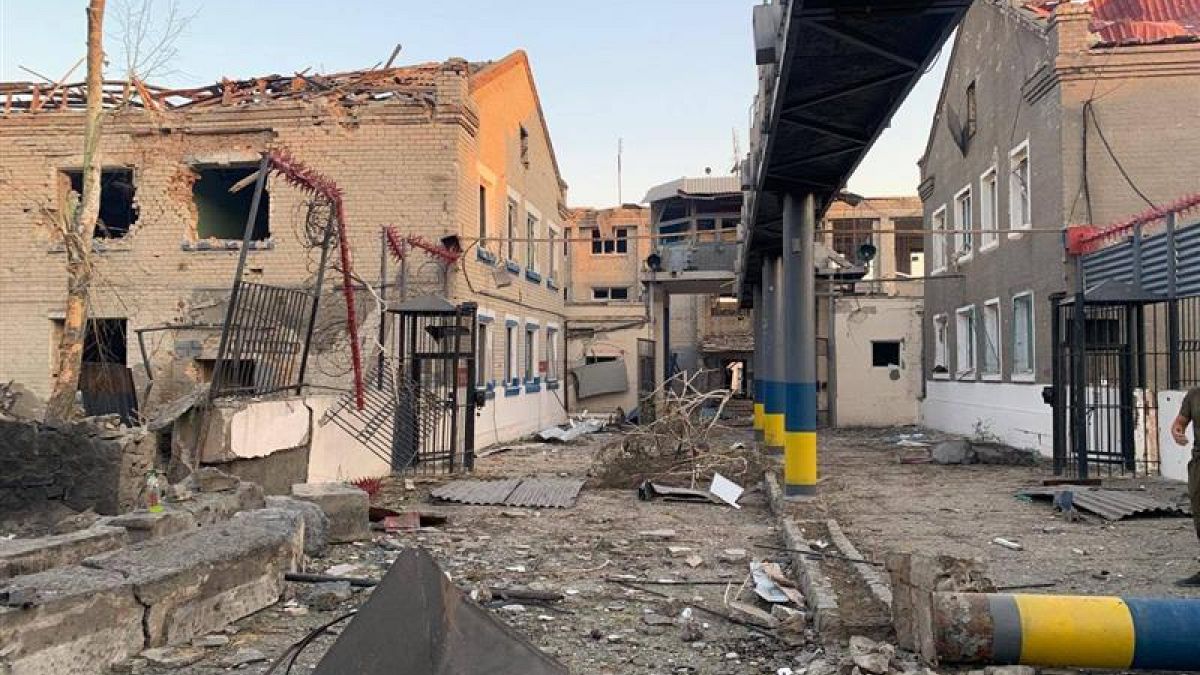

In recent events that have reverberated across the globe, the tensions in Ukraine and Gaza stand at the forefront of international attention. These situations serve as poignant reminders of the enduring impacts of conflict, underscoring a need for sustained attention and action from the global community.
In Ukraine, a recent wave of airstrikes by Russian forces has resulted in significant loss of life and widespread injuries. Ukrainian President Volodymyr Zelenskyy reported that at least 25 people were killed in these overnight attacks, with over 85 others injured. Among those critically impacted, a harrowing incident occurred at a prison facility in the frontline region of Zaporizhzhia, where 17 inmates tragically lost their lives due to a direct hit from a guided air bomb. The city of Kamianske in the Dnipropetrovsk region also faced devastation when a hospital was struck, resulting in the deaths of three individuals, including a young pregnant woman.
This surge in violence follows former U.S. President Donald Trump’s declaration that he would advance a more stringent timetable for Russia to make strides toward resolving the ongoing conflict. Trump proposed a deadline of 10 to 12 days for renewed discussions on a ceasefire and warned of additional sanctions should progress not be made. His remarks add a layer of diplomatic urgency as global leaders call for an end to the hostilities that have indiscriminately affected civilians.
The ripple effects of the situation in Ukraine are felt far beyond its borders, with international observers urging a de-escalation of tensions for the sake of stability not only in Eastern Europe but globally. The hope remains that peaceful dialogues may eventually guide both nations towards a pathway of resolution.
Simultaneously, the humanitarian situation in Gaza has reached a critical juncture. The United Nations and related aid organizations have issued urgent warnings about a burgeoning humanitarian crisis within the region. UN Secretary-General António Guterres characterized the scenario as a “humanitarian catastrophe of epic proportions,” with aid trickling into the area at insufficient levels. The World Food Programme has further painted a stark picture reminiscent of historical famine crises, underscoring the urgency with which the world must act to stave off a complete disaster.
The situation is exacerbated by ongoing military actions. Recent reports indicate that the death toll from Israeli military responses has surpassed 60,000, marking a significant and sobering milestone. In tandem, over 145,000 individuals bear injuries from the conflict, with many more experiencing the pervasive impacts of infrastructural damage and dwindling resources. The complex dynamics between the humanitarian needs and the security challenges continue to puzzle international policymakers seeking solutions.
The intertwined crises in Ukraine and Gaza reflect broader themes of conflict and humanitarian need that remind us of the global village we inhabit. They compel consideration of both immediate responses and long-term strategies that address root causes and foster sustainable peace. The challenges are significant, yet within them lie opportunities for solidarity and resilience, as nations, communities, and individuals unite in the face of adversity.
In the midst of these unfolding events, the international community’s role as a beacon of support, compassion, and action becomes ever more critical. It is essential to balance hope with pragmatism, encouraging diplomatic solutions that adhere to humanitarian principles and promoting cooperative efforts aimed at alleviating the immediate suffering.
As these stories continue to develop, they serve as catalysts for reflection and action, urging all of us to remain engaged with the current global realities. Building a peaceful future demands collective efforts and a commitment to ethical governance, resource equity, and, above all, the unwavering dedication to human life and dignity. The path ahead is complex, but through mindful engagement and concerted effort, progress can be fostered towards a brighter, more peaceful tomorrow for all.
Source: {link}
